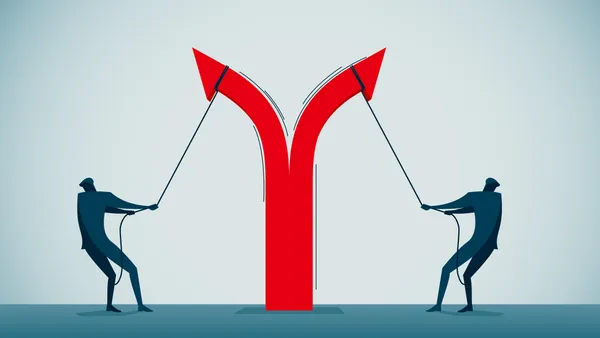The former head of subprime trading at Deutsche Bank has been charged with misrepresenting the quality of loans underlying residential mortgage-backed securities, resulting in hundreds of millions of dollars in investor losses.
The U.S. Department of Justice said Paul Mangione should be liable for his role in Deutsche’s “fraudulent and illegal scheme” to sell two mortgage-backed securities known as HE4 and HE5 in 2007, alleging in a civil complaint that he “systematically and intentionally misrepresented key characteristics” of the securitized loans while knowing the representations were false.
Mangione had a “clear understanding” that Deutsche subsidiary Chapel Funding, the primary originator of the loans, “had abandoned any semblance of responsible underwriting practices — to the point of underwriting loans with confirmed borrower fraud — in order to ‘drive volume,” the complaint said.
In a phone conversation with Deutsche’s diligence director 12 days before the close of the HE4 offering, he allegedly said of Chapel, “Yeah, I think they originate crap.”
The complaint alleges claims of wire fraud and mail fraud against Mangione, who joined Deutsche Bank from Credit Suisse in 2000. The government is seeking civil penalties under the Financial Institutions Reform, Recovery and Enforcement Act.
Deutsche in January agreed to pay $7.2 billion in penalties to settle a DoJ case that included the securities Mangione allegedy misrepresented.
Mangione “fraudulently induced investors … to invest nearly a billion and a half dollars in HE4 and HE5 RMBS, and caused them to suffer extraordinary losses as a result,” Bridget M. Rohde, acting U.S. attorney for the Eastern District of New York, said in a news release.
HE4 was a $1 billion issuance that closed on April 30, 2007 while HES was a $420 million issuance that closed on June 29, 2007.
According to the government, Mangione was personally responsible for providing investors with accurate information about the securities but “abandoned that responsibility, opting instead to rid the subprime book of the defective loans, thereby protecting Deutsche Bank’s bottom line and, ultimately, his own salary, which was based in large part on the profitability of the subprime trading desk.”












